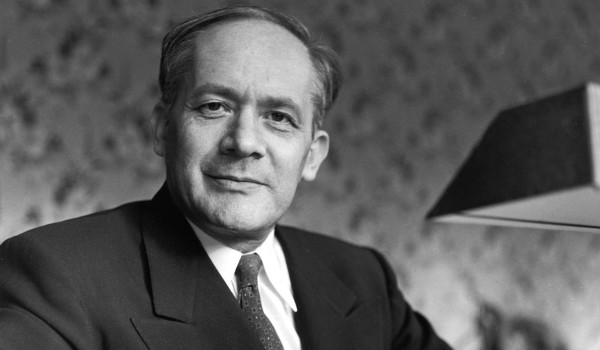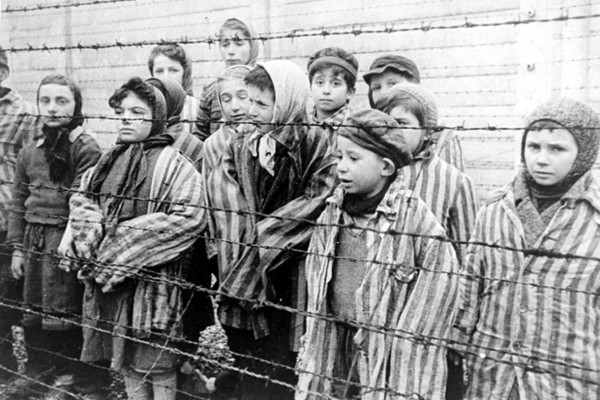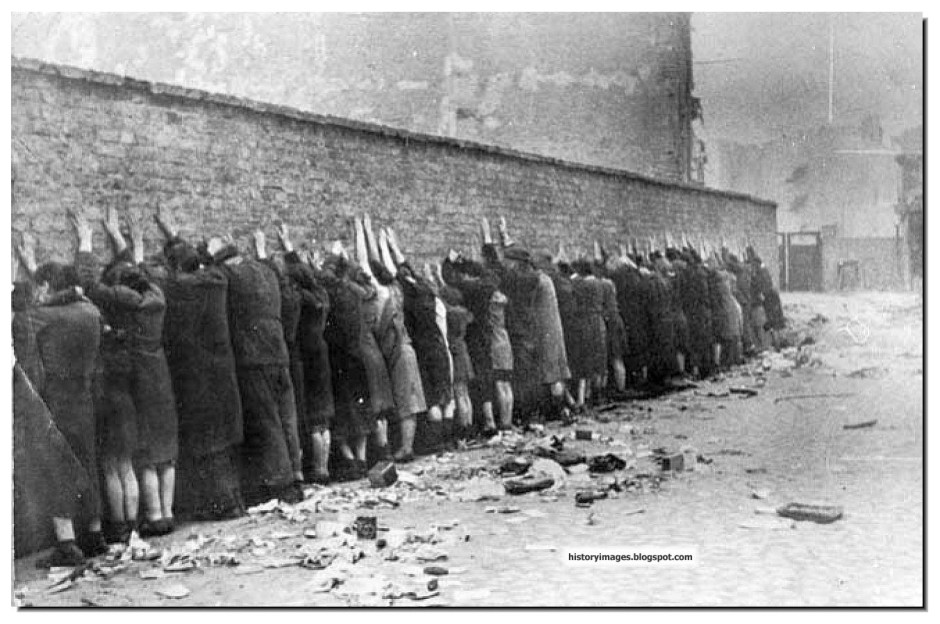While waiting for a bus in Manhattan on August 29, 1959, Raphael Lemkin collapsed, dying a few hours later. He was 59. Only seven people attended his funeral, according to New York Times columnist A. M. Rosenthal.
Lemkin, a Polish Jew, was on his way to meet his literary agent. They were to discuss his nearly completed autobiography, Totally Unofficial, which is partially about the indispensable role he played in the conception and passage of the United Nations’ Convention on the Prevention and Punishment of the Crime of Genocide.
“Lemkin did not just invent the word ‘genocide,’ he labored for years to ensure the act became an influential component within international law,” writes Donna-Lee Frieze, the editor of Totally Unofficial, which has finally made it into print. Published by Yale University Press, it illuminates Lemkin’s life in Lithuania and Poland and the roots of his interest in genocide.

A bachelor who suffered from poor health and loneliness, he spent the last two years of his life writing the book. He did so under harsh conditions. Having given up his position as a law professor to pursue this labor of love, he lived in a state of impoverishment. Why he was so poor is something Frieze neglects to explain. Nor does she offer an explanation for the paucity of mourners at his funeral. Had Lemkin been forgotten, consigned to obscurity, at the time of his death?
As she writes in the preface of Totally Unofficial, he was always interested in the topic of the persecution of religious, racial and minority groups. What really triggered Lemkin’s interest in the protection of ethnic and religious groups was the 1915 massacre of Armenians in the Ottoman Empire and the trials in the 1920s of the assassins of Talaat Pasha and Symon Petliura.
Pasha, the Ottoman minister of interior during the mass murder of the Armenians, was shot by Soghomon Tehlirian in 1921. Petliura, who oversaw pogroms in Ukraine, was gunned down by Shalom Schwarzbard in 1926.
“Lemkin was deeply disturbed that a government could attempt to destroy a national group with impunity, while a person could be tried for the murder of an individual,” says Frieze.
In 1933, Lemkin — a deputy public prosecutor in Warsaw –attended a League of Nations conference in Spain to outlaw genocide, which was then described as “barbarism” and “vandalism.” As he observes in Totally Unofficial, he first formulated the concept of genocide in Madrid, but his proposal for a convention was shelved.
Lemkin fled Poland shortly after Germany’s invasion on September 1, 1939. En route to Lithuania, he spoke to a Jewish baker in eastern Poland who scoffed at the notion that the Nazis would try to eradicate Jews. “He could not believe the reality of genocide because it went against nature, against logic, against life itself and against the warm smell of bread in his house …”
In Riga, Lemkin looked up the famed Jewish historian Simon Dubnow. “As I entered his bright study, a fireplace with crackling wood logs was sending waves of heat over the room. ‘It’s so pleasantly peaceful here,’ I remarked. ‘The lull before the storm’, he said.” Within a few years, Dubow was dead, having been murdered by the Nazis.
At the invitation of Sweden’s former minister of justice, Lemkin lectured in Stockholm for a while. He continued on to the United States, hoping to disseminate the message that genocide lay at the heart of Nazi policies.

By way of Russia, Japan and Canada, Lemkin arrived in Durham, North Carolina, to deliver lectures at Duke University. The train stopped in Lynchburg, Virginia, and there he saw, in the restrooms of the station, the inscriptions For Whites and For Coloreds. “These intrigued me, and I innocently asked the Negro porter if there were indeed special toilets for Negroes. He gave me a puzzled look, mixed with hostility, and did not answer.”
It was only much later that Lemkin realized that he had insulted the porter. As he puts it, “I understand now that he must have thought I was making fun of him.”
In June 1941, a letter from his parents informed him that they were well. It was the last letter he would ever receive from them. They were murdered in the Holocaust, as were Lemkin’s relatives. “I was ashamed of my helplessness in dealing with the murderers of humanity, a shame that has not left me to this day.”
Hired as an analyst by the Board of Economic Warfare in Washington, D.C., he found “complete unawareness” there of what Germany planned for the Jewish inhabitants in Nazi-occupied areas. “My first attempts to educate my colleagues were discouraging. They were only politely interested.”
In a letter to President Franklin Roosevelt, Lemkin implored him to adopt a treaty on genocide. Roosevelt, in his reply, urged patience. Lemkin was sorely disappointed.
“Patience is a good word for when one expects an appointment, a budgetary allocation, or the building of a road. But when the rope is already around the neck of the victim and strangulation is imminent, isn’t the word ‘patience’ an insult to reason and nature?”
With news of Nazi atrocities filtering out, Lemkin’s nights turned into nightmares. “Visions of my parents … became very realistic. My health deteriorated.”
Lemkin documented Nazi atrocities in Axis Rule in Occupied Europe, a book in which he introduced the word “genocide.”
As he wrote, “By ‘genocide’ we mean the destruction of a nation or of an ethnic group. This new word, coined by the author to denote an old practice in its modern development, is made from the ancient Greek word genos (race, tribe) and the Latin cide (killing)…. Generally speaking, genocide does not necessarily mean the immediate destruction of a nation, except when accomplished by mass killings of all members of a nation. It is intended rather to signify a coordinated plan of different actions aiming at the destruction of essential foundations of the life of national groups, with the aim of annihilating the groups themselves. Genocide is directed against the national group as an entity, and the actions involved are directed against individuals, not in their individual capacity, but as members of the national group”

After the war, Lemkin worked with the Americans team prosecuting Nazi war criminals at the Nuremberg trials, convincing his bosses to incorporate the word “genocide” in the indictment against them.
In the concluding pages of Totally Unofficial, Lemkin describes the birth pangs of the UN genocide convention — the diplomats he met, the discussions he had with them, the meetings he attended. Regrettably, this section tends to be rather dull.
As he lobbied for its passage, Lemkin made incredible personal sacrifices. “I had to borrow money to buy food,” he admits. “When I could not do it, I went hungry. I had been living on a diet because of bad health, and now I found myself suddenly exposed to the food of cheap restaurants. My health deteriorated from one day to the next. At the UN, I could hardly stand on my feet and often had to look for the support of a wall or a sofa.”
Against all odds, Lemkin persevered, helping to push through a seminal international convention that will always be linked with his name.
